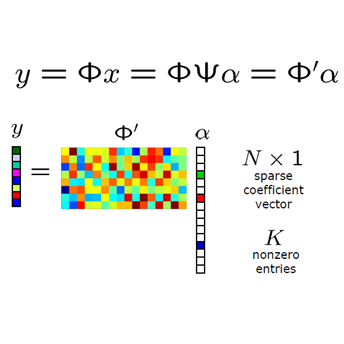We consider the general problem of recovering a high-dimensional signal from noisy quantized measurements. Quantization, especially coarse quantization such as 1-bit sign measurements, leads to severe information loss and thus a good prior knowledge of the unknown signal is helpful for accurate recovery. Motivated by the power of score-based generative models (SGM, also known as diffusion models) in capturing the rich structure of natural signals beyond simple sparsity, we propose an unsupervised data-driven approach called quantized compressed sensing with SGM (QCS-SGM), where the prior distribution is modeled by a pre-trained SGM. To perform posterior sampling, an annealed pseudo-likelihood score called {\textit{noise perturbed pseudo-likelihood score}} is introduced and combined with the prior score of SGM. The proposed QCS-SGM applies to an arbitrary number of quantization bits. Experiments on a variety of baseline datasets demonstrate that the proposed QCS-SGM significantly outperforms existing state-of-the-art algorithms by a large margin for both in-distribution and out-of-distribution samples. Moreover, as a posterior sampling method, QCS-SGM can be easily used to obtain confidence intervals or uncertainty estimates of the reconstructed results. The code is available at https://github.com/mengxiangming/QCS-SGM.
翻译:我们考虑了从噪音四分位测量中恢复高维信号的普遍问题。量化,特别是粗化的量化,如1比特标志测量,导致严重的信息丢失,从而导致对未知信号的先前良好了解有助于准确恢复。受基于分数的基因化模型(SGM,又称扩散模型)在捕捉简单宽度以外的丰富自然信号结构时的动力的驱动,我们提议采用一种未经监督的数据驱动方法,称为SGM(QCS-SGM)的四分压缩压缩传感器(QCS-SGM),在这种方法中,先前的分布由经过事先训练的SGM模拟模型模拟。为了进行海面取样,引入了称为 htextit{noise perturbled 伪相似度评分的麻醉假相,并结合了SGM的先前评分。 拟议的QCS-SGGM适用于任意数量的四分位数。对各种基线数据集的实验表明,拟议的QCS-SGGGG 大大超越了现有的状态。 QS-GM-reval-saling Q-revalal-mama-saling the laeval-reval-rupal-reval-s-s-reval-reval-reval-rupal-s-s-s,可以轻易地将Gmama-s-s-s-s-salupal-s-s-s-s-s-s-s-s-s-s-sal-sal-sal-salupalupalupal-sal-sal-sal-s-s-s-s-s-s-s-s-s-s-s-s-s-s-s-s-s-s-sal-sal-sal-sal-s-s-sal-sal-sal-sal-sal-sal-sal-sal-sal-sal-s-s-s-sal-sal-s-s-s-s-s-sal-s-s-s-s-s-s-s-s-s-s-s-s-s-s-s-s-s-s-




